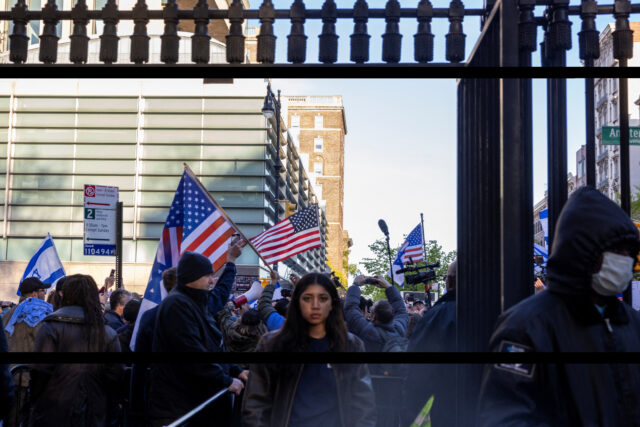A pro-Palestinian US group has filed a federal civil rights complaint against Columbia University on Thursday. This comes after Columbia President Minouche Shafik took the move to invite New York City police to enter the campus on Thursday afternoon, where over 100 demonstrators were arrested for protesting against Israel for the ongoing war in Gaza.
Palestine Legal, an organisation that seeks to protect the rights of people in the US to speak out on behalf of Palestinians, urged the US Education Department to probe the school’s actions, which it alleges were discriminatory against those who are pro-Palestinian.
The last time the police entered the campus was in 1968.
Columbia University has been seen as the epicentre of protests that have engulfed US universities, and the Columbia president was under increasing pressure to take action. She faced a stiff congressional hearing on Wednesday, where she was grilled by Congressmen on her stance regarding the ongoing protest movement. Shafik’s record since the October 7 attacks conducted by Hamas took the step of temporarily suspending two pro-Palestinian student groups — Students for Justice in Palestine and Jewish Voice for Peace — because the university said they had violated its policies. Such actions, say her critics, laid the ground of what was to follow.
While Shaifk’s answers pleased Republican lawmakers and some Jewish students on campus, her action has been widely condemned in the university, where she is under increasing pressure to resign. According to the New York Times by the time the congressional hearing was over, students had already pitched their tents inside the campus with one message: they would not leave till the university divested all its ties from Israel. After brief negotiations, the police was called in on Thursday.
Shafik, who has not responded to requests for an interview thus far, has made her feelings clear in a public statement she wrote earlier this week. To “de-escalate the rancour” she said that all classes would be held virtually on Monday. “Faculty and staff who can work remotely should do so; essential personnel should report to work according to university policy. Our preference is that students who do not live on campus will not come to campus.”
However, while some praise her actions, others fear it will lead to even more backlash, which is what the federal complaint has brought forward. Regardless of what may happen to her, protests in other major US universities show no signs of ending. The University of Southern California (USC) has already cancelled its main commencement ceremony for 2024 graduating students in May citing safety measures.
The Biden administration has acknowledged that the student protests have been sending a larger message. When asked at a press briefing if US Secretary of State Antony Blinken was aware of the protests, State Department official Vedant Patel said “absolutely,” and added that the administration supported the right to protest peacefully.
“But we’re also not naive to the fact that when it comes to any of the foreign policy that we pursue, 100% of the population is not going to agree with what we’re trying to accomplish.”
(With inouts from Reuters)
















